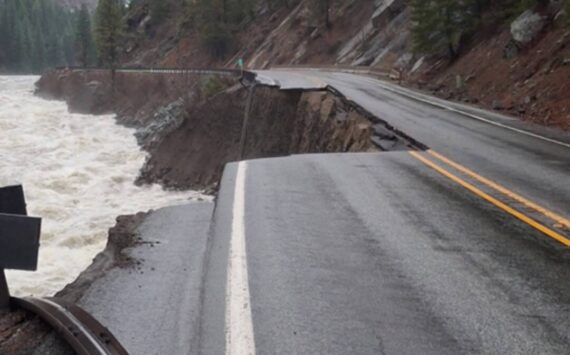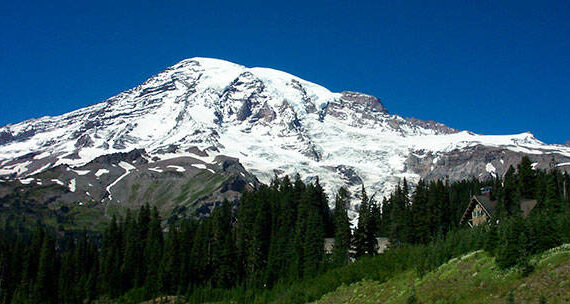By Morf Morford
Tacoma Daily Index
You gotta love the jargon of economics; when the markets (and our confidence in them) take a dip, are we in a correction? A recession? Or a depression?
For those of us born and raised in the Pacific Northwest, the threat of larger-than-usual economic implosion is much like our subconscious dread of “The Big one” – the earthquake that we all know is inevitable, but not today, probably not this year – and maybe not even in our lifetimes.
The “Big One”, either geological or economic, could come any time – or not – and the best, maybe only, advice is that old Boy Scout adage – “Be prepared”.
“A recession is when your neighbor loses his job; a depression is when you lose yours.”
But first, a few definitions; a “correction” is when the market recalibrates after growth has been a bit too “exuberant”.
A “correction” is usually extremely temporary, sometimes just a few days, and recovery is usually just as dramatic and just a bit more stable. A “correction” is usually related to a loss of confidence in market fundamentals.
A recession, on the other hand, is longer term. A recession is a technical term for two consecutive quarters of negative growth.
The daily, or even weekly swings of the market (or any other economic indicators from employment figures to home sales or loan defaults) don’t make much difference – unless they impact the totals for more than one consecutive quarter.
A depression is when we fall into an economic crevasse – and can’t get out.
To put it another way, the word “recession” is a verb – an action word. For better or worse, a healthy economy is one perpetually in motion. A recession just happens to be negative motion.
The word “Depression” is a noun, a person place or thing – or state of being. In other words, a recession is an act of motion, a depression is a static condition.
Another distinction is that when you are in an economic depression, you know it. A recession is only discernible in retrospect.
And, since recessions are measured in quarters – that is three whole months – in fact by consecutive quarters – it takes a full six months at minimum – to hit the definition of a recession – and at least another full quarter to register a “recovery” from a recession.
If you study economic trends, you will quickly see that we have recessions (large or small) about every ten years. (1*)


What we had in late 2008 – and for several years after – was a “Great Recession” – a recession that, by standard definition at least, lasted only a few quarters – and never hit bottom and stayed there.
The “Great Recession” technically ended in June of 2009 – though in many industries and parts of the country – it certainly did not feel like it.
But it did end, at least statistically, in 2009.
In spite of how difficult it was – and how long it lingered – for many individuals – and some economic sectors – like housing and manufacturing, the recovery was slow but steady.
And then, some sectors, housing in particular, exploded with a near “gold rush” speculative fever, while many sectors of manufacturing permanently shut down or transferred facilities overseas.
One of the many ironies of the “Great Recession” is the explosion of wealth and the hardening of something few, if any, talked about back then – income inequality.
The number of people with a net worth of $1 million (not counting the value of primary residence) increased by 16% in 2009. (2*)
And the number of millionaires has been growing dramatically ever since 2009. (3*)
In other words, economic upheavals, whether recessions, depressions or even just corrections, are a re-shuffling of the economic deck, with clearly defined – and sometimes unexpected – winners and losers.
The “Great Recession” we experienced about ten years ago was deeper than our usual recession because of banking, mortgage and investment fraud and manipulation contributing to the unexpected demise of major firms like Lehman Brothers and Washington Mutual and multiple lawsuits and settlements against companies like Countrywide and Wells Fargo.
I’d like to think we’ve learned our lesson when it comes to housing “bubbles”.
But I’m not at all convinced.
Just like the fall of 2008, I see virtually no one warning of the (to me, obvious) economic cliff ahead of us.
Most standard economic indicators look good, employment figures and the stock market are at record highs, what could go wrong?
I’ve been teaching at the college level for many years, up until mid-2018. One of the “reality checks” I used in many classes regarding the future of our economy is the sheer fact of 10,000 baby boomers retiring EACH DAY from 2011 to 2029. (4*)
To say that this demographic shift will send unprecedented shock waves throughout our economy is the ultimate understatement.
The term for this is “the silver tsunami”. It refers to the near flood of those retiring and leaving the job market.
To put it mildly, there is a nowhere near equal number entering the job market.
Every aspect of our economy from taxes, to the job market to housing prices, school funding, Social Security and interest rates will be thrown into chaos.
Anyone who was paying attention could see this coming ten – if not twenty – years ago.
Mix in tariffs, erratic trade policies (from several formerly stable nations) climate upheavals and consequent crop failures around the world and you have the recipe for a economic upheaval like no other.
On the opposite demographic scale, most nations across Europe, North America and Asia are experiencing the steepest decline in birth rates in history.
For the most part, only Africa and a few nations in Southeast Asia have high (which means replacement level) birth rates.
Most nations of Europe, the USA and Canada – and particularly Japan, are far from even a numerically sustainable population.
Rural areas in Europe and North America are emptying out at an alarming rate, with a variety of survival strategies to continue to exist – including giving away homes to anyone who would stay. (5*)
Those 300,000 retirees each month are tilting the housing market towards smaller downsizing models – in contrast to the McMansions of recent years.
That and the Marie Kondo “Tidy up” movement are flooding our thrift shops with unneeded knickknacks and tiny homes as a popular and affordable solution to expensive real estate are combining to shift the market to ever smaller – and more convenient (as in walkable) housing.
It will take until mid 2020 to process the numbers on the economy of 2019.
But for now, monthly ADP’s (https://www.cbsnews.com/news/adp-job-creation-drops-to-9-year-low-in-may/) job growth numbers were the lowest they’ve been since March 2010. In total, 27,000 jobs were created in May of 2019. Small businesses lost 52,000 positions. The Bureau of Labor Statistics said the net job growth was higher, at 75,000. For a little perspective, we need about 175,000 jobs just to stay even, given net new entrants to the work force.
I’ve been a market observer for quite a while and I have to say that the convergence of national deficits, political upheavals (from Brexit to coups and civil wars in place like Syria, Sudan, Yemen and many others) and economic collapse (in places like Venezuela, Spain, Portugal and many more) along with massive crop failures and floods of refugees from all kinds of besieged corners of the world all sounds like the ideal culture medium for an even more spectacular recession.
The building blocks for a major recession are all in place. It is only a matter of time, and like the geologic corollary, I am convinced that we are long overdue for “The Big One”.
I can’t say when exactly, but I don’t think we’ll make it out of 2019 without a recession.
Many who follow the markets project the second half of 2019 (and beginning of the new fiscal year – July 1) to be the beginning of the statistically defined recession.
All I can say is “be prepared”.
(1*) https://en.wikipedia.org/wiki/List_of_recessions_in_the_United_States
(2*) https://www.huffpost.com/entry/number-of-us-millionaires_n_491942
(4*) By 2029, one of five Americans will be 65 or older. 2039 is expected to be the peak “expiration date” of the boomer generation.
(5*) Here are a few – https://www.csmonitor.com/USA/2019/0612/Want-your-own-slice-of-rural-heaven-Vermont-has-a-deal-for-you? or https://slate.com/business/2015/06/free-homes-in-italy-sicilian-town-offers-vacant-homes-to-businesses.html.









